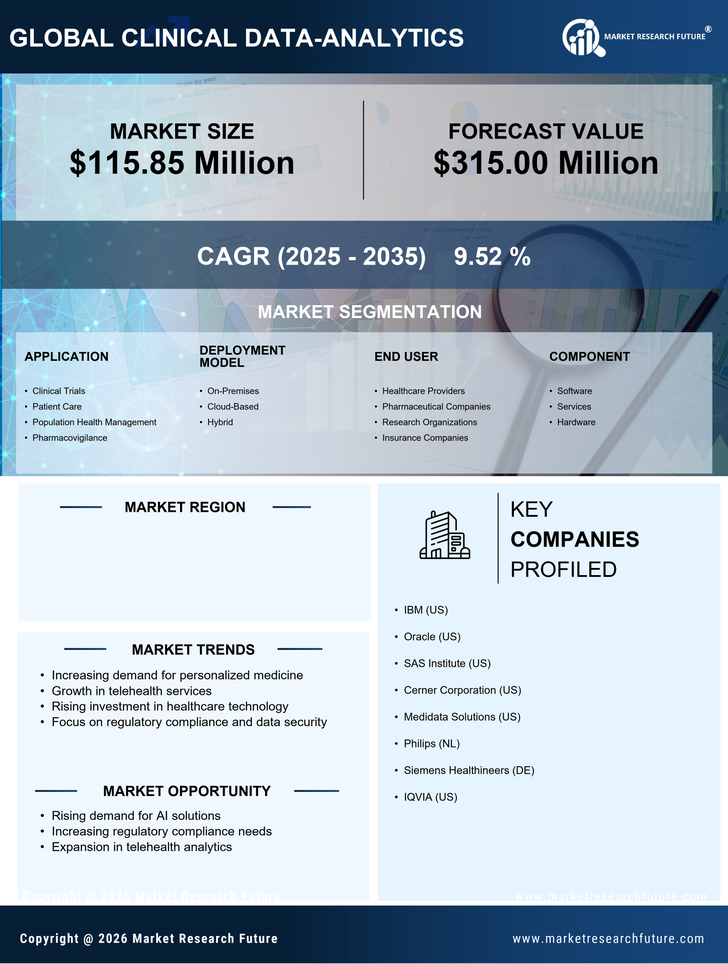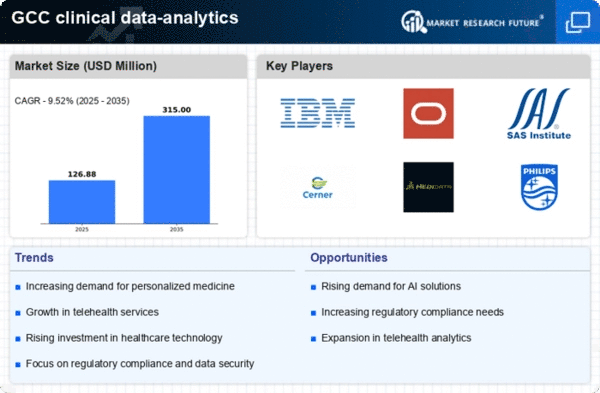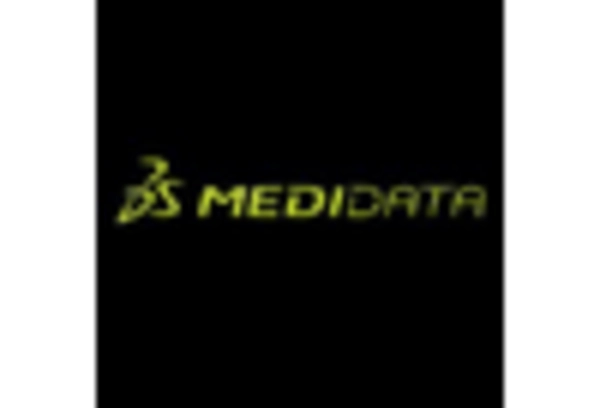Emphasis on Regulatory Compliance
Regulatory compliance is emerging as a critical driver in the clinical data-analytics market, particularly in the GCC region. As healthcare organizations strive to meet stringent regulatory requirements, the demand for analytics solutions that ensure compliance is increasing. The implementation of data protection laws and standards necessitates the use of advanced analytics to monitor and manage data effectively. This trend is likely to propel the market forward, as organizations seek tools that can assist in navigating complex regulatory landscapes. Moreover, compliance with regulations can enhance data integrity and security, which are paramount in healthcare. As a result, the emphasis on regulatory compliance is shaping the clinical data-analytics market, driving the adoption of solutions that facilitate adherence to legal and ethical standards.
Growing Focus on Personalized Medicine
The clinical data-analytics market is witnessing a growing focus on personalized medicine, which is reshaping the landscape of healthcare in the GCC. As healthcare providers aim to tailor treatments to individual patient needs, the role of data analytics becomes increasingly vital. By analyzing vast amounts of clinical data, healthcare professionals can identify patterns and trends that inform personalized treatment plans. This approach not only enhances patient outcomes but also optimizes resource utilization. The market for personalized medicine is projected to grow at a rate of 12% annually, indicating a robust demand for analytics solutions that support this paradigm shift. Consequently, the emphasis on personalized medicine is a significant driver in the clinical data-analytics market, as stakeholders seek to leverage data for improved patient care.
Rising Demand for Data-Driven Insights
The clinical data-analytics market is experiencing a notable surge in demand for data-driven insights, particularly within the GCC region. Healthcare providers are increasingly recognizing the value of leveraging data analytics to enhance patient outcomes and streamline operations. This trend is underscored by a projected growth rate of approximately 15% annually in the market, driven by the need for actionable insights that can inform clinical decision-making. As healthcare systems evolve, the integration of advanced analytics into clinical workflows is becoming essential. This shift not only improves patient care but also optimizes resource allocation, thereby enhancing overall operational efficiency. Consequently, the rising demand for data-driven insights is a pivotal driver in the clinical data-analytics market, as stakeholders seek to harness the power of data to inform strategic decisions.
Investment in Healthcare Infrastructure
Investment in healthcare infrastructure across the GCC is significantly influencing the clinical data-analytics market. Governments and private entities are channeling substantial funds into modernizing healthcare facilities and adopting advanced technologies. For instance, the GCC healthcare expenditure is expected to reach $100 billion by 2025, reflecting a commitment to enhancing healthcare delivery. This influx of capital facilitates the implementation of sophisticated data analytics tools, enabling healthcare providers to collect, analyze, and utilize clinical data more effectively. As infrastructure improves, the capacity for data integration and analytics expands, fostering a more robust clinical data-analytics market. This investment not only supports the development of innovative solutions but also encourages collaboration among stakeholders, further driving the market's growth.
Advancements in Data Management Technologies
Advancements in data management technologies are playing a crucial role in the evolution of the clinical data-analytics market. The emergence of cloud computing, big data analytics, and machine learning is transforming how healthcare organizations manage and analyze clinical data. These technologies enable the efficient processing of large datasets, facilitating real-time analytics and insights. In the GCC, the adoption of cloud-based solutions is expected to increase by 20% over the next few years, reflecting a shift towards more agile and scalable data management practices. As organizations embrace these advancements, the clinical data-analytics market is likely to expand, driven by the need for innovative solutions that enhance data accessibility and usability. This technological evolution is essential for supporting the growing demand for data-driven decision-making in healthcare.

















